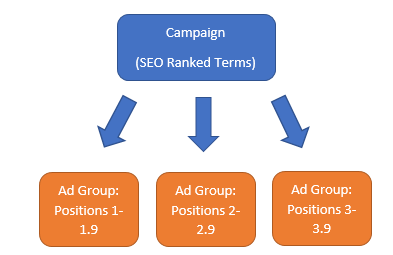Historically, PPC and SEO have worked in silos – they simply did not integrate efforts. The two channels have been viewed as competing against each other for online traffic. There has also been a misconception that by pausing paid search ads, organic search will cannibalize the paid traffic. This strategy does the opposite; it can wreak havoc on your overall traffic.
Today’s digital world is completely different than it was five years ago—even one year ago. Integrating your PPC efforts with SEO is not only optimal but crucial to your brand’s online success.
Benefits of PPC & SEO Working Together
There are many benefits of the two channels working together. Below are a few of my favorites that I believe have the most impact on strategy.
More SERP Visibility
This benefit is pretty obvious. You can establish a more dominant online search presence if both your PPC ad and SEO listing show up for a particular search query. In a recent study by Google, they confirmed that if an advertiser is in position 1 for an organic keyword AND they had a paid ad, this doubles your chances of clicks from a user.
The Ability to Share Keyword Data
The beauty of this benefit is that both PPC and SEO can contribute to each other’s data. PPC can target keywords that are not ranked yet organically, while SEO can uncover high performing long-tail keywords, which can later be targeted in PPC.
Landing Page Learnings
Sometimes, the PPC team does not have insight or control of what goes into the landing page they are promoting. However, working with your SEO team can lead to collaboration where the landing page can match with PPC ad copy to create a congruent experience for the user.
Putting It into Practice
Aligning the two channels to work together is great in theory, right? How many of you are practicing this theory, though? Below are a few tips to get you started on an inclusive PPC and SEO strategy. Remember, every brand is different, so make sure you align practices based on your brand needs and capabilities.
Create a separate campaign with relevant, high-ranking organic keywords.
The approach to this is simple. I group keywords into ad groups based on what position I am aiming for those keywords to be in. The sample structure looks like this:

Sometimes, it may not make sense for you to split out campaigns by SEO ranked terms. If not, have no fear! Another option is to assign labels to keywords that you’re easily able to segment and have more focus on.
Work with your SEO team on landing page and ad copy optimizations.
As stated above, if you do not have the necessary insight to provide feedback on landing pages, working with your SEO team is crucial for this strategy to work. If the PPC ad headline matches the landing page copy, you can see improved results.
If you want to take this a step further, communicate with your SEO team about high-performing ad copy. This could be helpful for the SEO team when they’re creating meta-data for a landing page.
Remember, PPC is always evolving, and so should your strategy. Always be testing out new initiatives and find what works well for your brand. Have you used a similar strategy in your PPC program? If so, I’d love to hear from you on your findings.
Take a look at our Organic and Paid Search capabilities to see how we can help you build a comprehensive search strategy.

